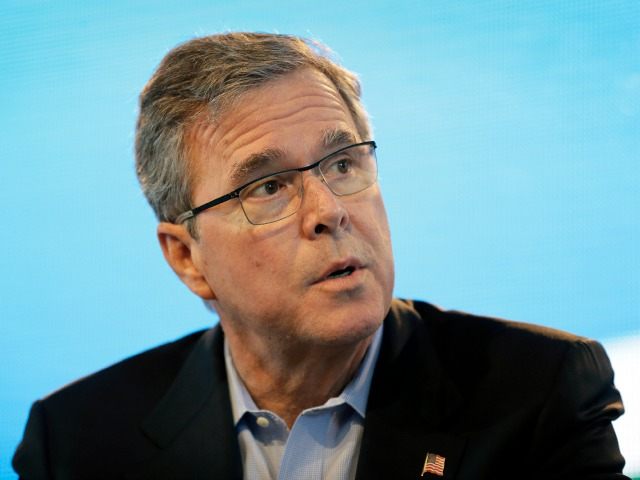A new poll shows former Gov. Jeb Bush (FL) has a slight lead in New Hampshire among potential Republican presidential candidates. But nearly a quarter of respondents were undecided ten months before the first-in-the-nation primary will take place.
The poll of 500 likely voters was conducted from March 21 to 24 by Suffolk University. Respondents were questioned by live telephone operators who called a split sample of landline and cell phone numbers. The margin of error was +/-4.4 percent, with a 95 percent level of confidence.
Nineteen percent of respondents selected Bush as their first choice for president, followed by Gov. Scott Walker (WI) at 14 percent, Sen. Rand Paul (R-KY) at 7 percent, and businessman Donald Trump at 6 percent. Sen. Ted Cruz (R-TX) and Gov. Chris Christie (NJ) were tied at 5 percent, and Sen. Marco Rubio (R-FL), former Gov. Mike Huckabee (AR), and retired neurosurgeon Ben Carson tied at 3 percent.
Twenty four percent of respondents were undecided, and the remaining 11 percent was split among ten other candidates, all of whom received less than 2 percent.
Part of the reason for Bush’s performance in this poll may be that New Hampshire Republicans tend to be less staunchly conservative than those in some states.
Questions that Suffolk University pollsters asked on various issues hint that New Hampshire Republican primary voters tend to be more liberal on social issues than Republicans nationally: forty-nine percent identified as pro-choice on abortion and 43 percent support legalizing gay marriage, for example.
The tea party movement is also less influential in New Hampshire than in some states. Forty-seven percent answered “no” when asked if their values were similar to the tea party, and 32 percent said that the tea party has too much influence in Washington.
When looking just at the respondents who identified as “conservative,” Bush did not fare as well. Twenty percent of New Hampshire conservatives chose Walker, and Bush dropped to 14 percent.
David Paleologos, director of the Suffolk University Political Research Center, pointed to New Hampshire’s emphasis on personal retail politics as the key to success for candidates. A statement on the poll released by Suffolk pointed out that Trump had just visited the state last week to test the waters for a potential campaign, likely giving his numbers a boost. “The single-digit candidates need to go to New Hampshire and make a personal appeal to likely Republican voters there if they want to become the Republican alternative to Jeb Bush,” said Paleologos. “There are still plenty of undecided voters who might be won over if they make their case.”
As Breitbart News reported, a recent Florida poll showed that Bush has dropped 5 percent since last June among voters in the state where he was governor. Bush’s moderate positions on issues including immigration and Common Core are expected to continue to be roadblocks for him among conservative voters.
Bush also inherits popularity problems his relatives have with Republican primary voters. The Suffolk University poll asked respondents to pick their favorite out of the last three Republican presidents, and some three-quarters chose Ronald Reagan over either Bush’s father or brother. Seventy-six percent chose Ronald Reagan, 14 percent chose George Herbert Walker Bush, and 6 percent chose George W. Bush.
The Sun-Sentinel’s report on this poll points out that New Hampshire primary voters “haven’t been kind to previous Bush presidential candidates.” George H.W. Bush lost the 1980 New Hampshire primary before going on to be selected as Reagan’s running mate. When he ran for president in 1988 and 1992, was able to win the state’s primary. George W. Bush also lost his first attempt at the New Hampshire primary, in 2000, before winning the presidency.
Follow Sarah Rumpf on Twitter @rumpfshaker.

COMMENTS
Please let us know if you're having issues with commenting.